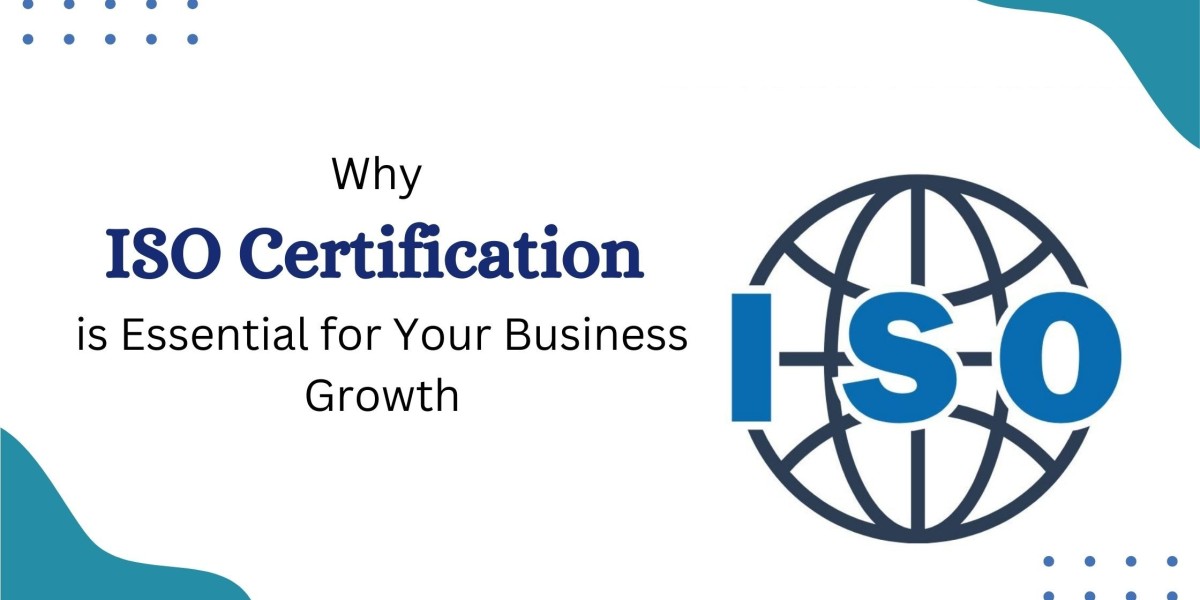Running a successful business today requires more than just providing a good product or service. You also need to ensure your operations are streamlined, efficient, and trusted by your customers. One way to achieve all of this is by obtaining ISO certification. But what is ISO certification, and why is it so essential for business growth? Let’s break it down in simple terms.
What is ISO Certification?
ISO stands for the International Organization for Standardization, a global body that creates standards for businesses across various industries. When a business is ISO certified, it means it meets the required international standards for quality, safety, and efficiency in its operations. ISO certification is recognized worldwide and shows customers and partners that your business follows the best practices and works towards continuous improvement.
There are many different types of ISO certifications, depending on the industry or area of operation. The most commonly known is ISO 9001, which focuses on quality management. Other certifications include ISO 14001 for environmental management and ISO 45001 for occupational health and safety.
Why ISO Certification is Essential for Your Business Growth
Builds Trust with Customers
One of the most important reasons for getting ISO certification is that it builds trust with your customers. In today’s competitive market, people are more likely to choose companies that are certified because it guarantees that the business follows international best practices.
When your business is ISO certified, it sends a strong message to customers that you care about delivering quality products or services. This is particularly crucial in industries like manufacturing, healthcare, and construction, where safety, precision, and compliance are top priorities.
Increases Operational Efficiency
ISO certification doesn’t just make your business look good on paper. It helps improve your internal processes, too. The standards require companies to streamline their operations and ensure that resources are used efficiently. This often leads to cost savings, improved workflow, and better overall productivity.
Helps in Gaining Competitive Advantage
Having an ISO certification can give you an edge over competitors who aren’t certified. It’s a clear differentiator that shows potential customers or partners that you’re serious about quality and meeting international standards. In industries where quality and reliability are key, an ISO certification can make all the difference in winning contracts or gaining customer loyalty.
Access to New Markets
ISO certification can also make it easier to expand into new markets, both locally and internationally. When your business meets international standards, it becomes easier to work with customers or partners in other countries. In fact, many countries and large corporations require ISO certification as a part of their tender or contract bidding process.
Improves Employee Engagement
One of the less obvious but highly beneficial aspects of ISO certification is its impact on your employees. ISO standards often emphasize creating a better work environment, improving employee safety, and fostering a culture of continuous improvement.
When your business follows ISO standards, employees are typically more engaged because they know the company is focused on maintaining high standards and investing in its people. This can lead to better job satisfaction, higher morale, and a more productive workforce. Additionally, having clear and standardized processes helps employees understand their roles better, which can reduce confusion and errors.
Enhances Risk Management
Managing risks is an essential part of running any business. Whether it’s a financial risk, operational risk, or even the risk of non-compliance with regulations, being able to anticipate and manage risks is key to business success. ISO standards, particularly ISO 9001 and ISO 31000 (risk management), help businesses put systems in place that identify, assess, and mitigate risks effectively.
Supports Sustainable Practices
As environmental concerns continue to rise globally, businesses are under increasing pressure to adopt sustainable practices. ISO certifications like ISO 14001 focus on environmental management, helping businesses reduce their ecological impact by improving resource management, waste management, and energy efficiency.
Being ISO certified in environmental management not only helps the planet but also strengthens your brand. Consumers and businesses alike are more likely to support companies that show a commitment to sustainability. It also helps ensure that your business complies with environmental regulations, reducing the risk of penalties or legal issues.
Increases Profitability
Ultimately, ISO certification can help increase profitability. While there may be an upfront investment in getting certified, the long-term benefits far outweigh the costs. Through improved operational efficiency, reduced waste, better risk management, and the ability to tap into new markets, your business can become more profitable over time.
Note: Apply for ISO 22000 Certification- Food Safety Management System (FSMS)
Conclusion
In today’s fast-paced and competitive business world, ISO certification is no longer just a nice-to-have – it’s essential for growth. It helps build trust with customers, improves your internal processes, gives you a competitive advantage, and opens up new market opportunities. More importantly, it enhances your reputation, supports employee engagement, and enables better risk management. By becoming ISO certified, your business not only adheres to international standards but also demonstrates a commitment to continuous improvement and quality. Whether you're a small business or a large corporation, ISO certification can be a game-changer that drives your success and growth in the long term.



